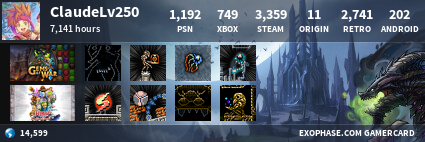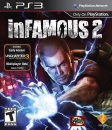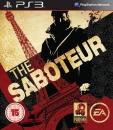
Last Rebellion suffers from a variety of technical failings, which I've detailed in my earlier review on Destructoid. They ultimately hamper the potential of its intriguing premise and inventive battle system. Its lack of polish and poor visuals simply don't deliver on the game's narrative - and mechanical - potential.
At the same time, it's those half-executed stabs at greatness, be they aesthetic or technical, are what turn Last Rebellion from a outright disaster to a tolerable, even enjoyable play experience. Despite myriad, justifiable reasons to hate it, I did have some fun playing it, and do not regret the time spent doing so.
Continue reading for my take on why that is.

Last Rebellion (PS3)
Developer: Hit Maker
Publisher: NIS America
Released: February 23, 2010
MSRP: $49.99
One of the more common complaints leveled at the average Japanese RPG is that its gameplay, concentrated in an arcane, nigh-incomprehensible battle system, is too divorced from its storytelling, concentrated in lengthy cutscenes and expository dialog.
It's ironic then, that that troublesome, dissonant structure ends up being Last Rebellion's greatest asset. The game's desperate inability to present itself in an accomplished fashion lends the lukewarm story and underdeveloped characters a charm that they don't really deserve to have.
It starts with the intriguing premise. Humans must beseech the Goddess of Death for salvation from the God of Life, who has taken to his role overzealously, raising things that should rightly remain off the mortal coil as powerful demons. And rather than starting off by having a plucky youngster clear the basement of giant rats, Last Rebellion places the world's most powerful Blade, Nine Asfel, right up front. Before long the smug, confident jerk is paired up with Aisha Romandine, a straight-laced lady and the world's most powerful Sealer.

The setting is just right to start a buddy-cop movie, but some concessions must be made to epic fantasy tale-telling. So, within minutes of the first meeting, Nine's stepfather, the king, is murdered by Alfred, Nine's stepbrother, and then re-raised as undead. As if to add insult to injury (or filicide to patricide), the now-undead king murders Nine right after that/.
One forbidden rescue ritual later, Nine and Aisha are soulmates - literally. Sharing a soul, they can never again be in the same (physical) place at the same time, which would definitely be in the way of getting their respective quests done. Aisha needs to do some mysterious thing, and Nine needs to murder Alfred back. It just so happens that doing one eventually provides the opportunity to do the other. Fancy that.

Thus, the seeds of adventure are planted, and for the most part Last Rebellion pulls it off. Adequately.
Actually, that's one of the words I would use to describe the game, alongside "unrefined". All the elements are there. It's a working game. The plot is straightforward and it ends cleanly, but one can't help but feel that somehow the game was left unfinished. The foundations were planted, the walls were erected, and the roof was laid, but Hit Maker were forced to use clear tarps instead of window glass and balsa wood instead of a proper door. The rooms are unpainted, and there's no ceiling, leaving the rafters in view. They all get the job done, but the bits and bobs that make a house a home were left out.
The same goes for the narrative. The banter is there, as cocky Nine bickers with snide Aisha, each never quite losing their rather refreshing attitudes. Nine questions little about his existence, but continually facepalms over the villains' antics. Aisha remains a more traditional character, but gains the benefit of some development.
Ultimately though, the game undermines itself thanks to its lackluster presentation. Dialog is conveyed by static cutouts (the staple of today's JRPG interaction), and instead of cutscenes we get a slideshow. A well-illustrated slideshow, as Ayako Kato's character designs look excellent, but a slideshow nonetheless.
Eventually, you feel that Last Rebellion would have been better if presented as a visual novel or a lower-budget PSP or DS RPG (I'm disregarding the PS2 out of age). It would in fact be preferable, as the extra money spent on higher-resolution graphics (which aren't that good to begin with) could have been spent on refining the game or making sure the menus don't take up 70 percent of the screen.

The characters are also left underdeveloped. Much of their past ties into the game world's history, but the nations, civil wars and cultures that made them what they are are mentioned only in passing or added as text entries to the game's plot outline (which fills in automatically with progress, a nice touch). Thus, you see why they'd behave that way or relate to each other in that fashion, but then the game is over. It ends too soon for a lot of meaningful exposition to happen.
Ironically, that "too soon" ending makes the game mercifully short. If it were padded out to get in all the possible development, the technical and aesthetic failings would have eventually made it all intolerable.
Last Rebellion is a thoroughly mixed bag. It gives its all, but never had that much to begin with. I can't in good conscience recommend that you buy the game, but I will happily tell you that I didn't hate it.










































































